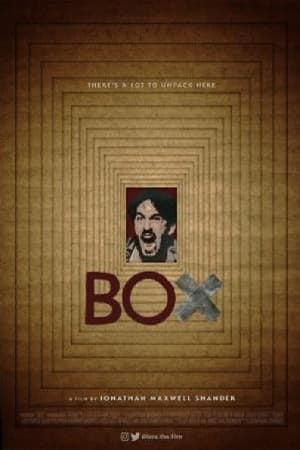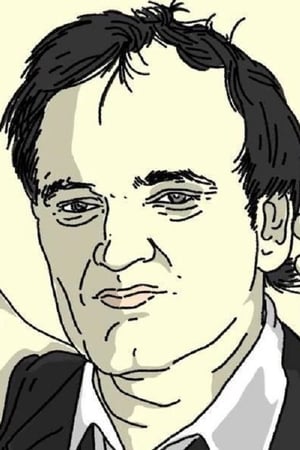
Moscow Strikes Back(1942)
Soviet documentary about the defeat of the Nazis near Moscow. Warning - graphic images. Edward G. Robinson narrates the English language version.
Movie: Moscow Strikes Back
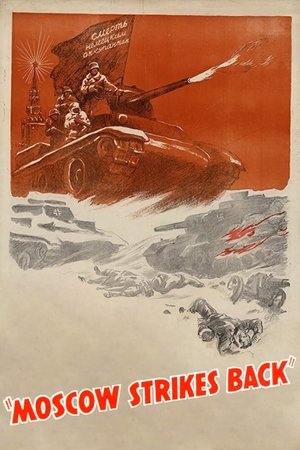
Разгром немецких войск под Москвой
HomePage
Overview
Soviet documentary about the defeat of the Nazis near Moscow. Warning - graphic images. Edward G. Robinson narrates the English language version.
Release Date
1942-02-23
Average
5.467
Rating:
2.7 startsTagline
Genres
Languages:
Pусский
Recommendations Movies
 8.0
8.0Moscow In Love(ru)
The young man nicknamed "Amur" works as a taxi driver in Moscow. Every day his taxi passes through the entire capital from the outskirts to the center. Areas, lifestyle, people are changing before our eyes. But Cupid will not find his place here. Moscow is just another source of problems for him. But once the capital itself decides to achieve reciprocity from Amur! It turns out to be the “intersection point” of three love stories at once.
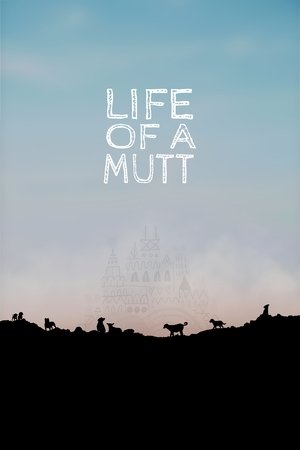 10.0
10.0Life of a Mutt(sr)
Through seven scenes, the film follows the life and destinies of stray dogs from the margins of our society, leading us to reconsider our attitude towards them. Through the seven “wandering” characters that we follow at different ages, from birth to old age, we witness their dignified struggle for survival. At the cemetery, in an abandoned factory, in an asylum, in a landfill, in places full of sorrow, our heroes search for love and togetherness. By combining documentary material, animation and acting interpretation of the thoughts of our heroes, we get to know lives between disappointment and hope, quite similar to ours.
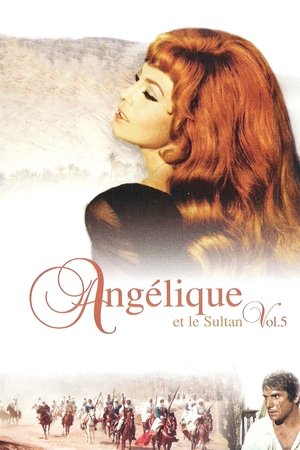 6.4
6.4Angelique and the Sultan(fr)
Angélique is in a North African Muslim kingdom where she is now part of the Sultan's harem. She refuses to be bedded as her captors try to beat sense into her. She finally decides to escape with the help of two Christian prisoners.
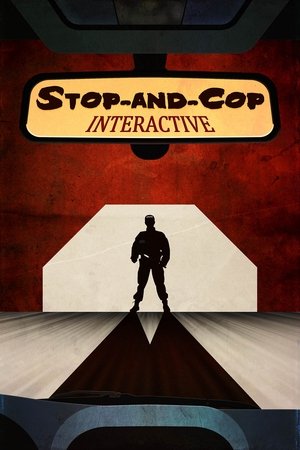 8.5
8.5Stop-and-Cop Interactive(fr)
STOP + Cop = "Stop" or "Slow down" ? Make the right choice. An interactice movie by Ken Arsyn.
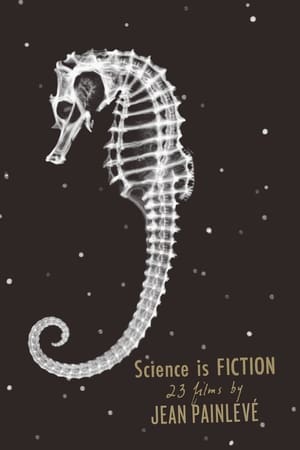 6.0
6.0Jean Painlevé Through His Films(fr)
This documentary about the life and work of filmmaker Jean Painlevé was originally presented in eight parts on French television. It was edited to remove duplicated material from its original length of 240 minutes.
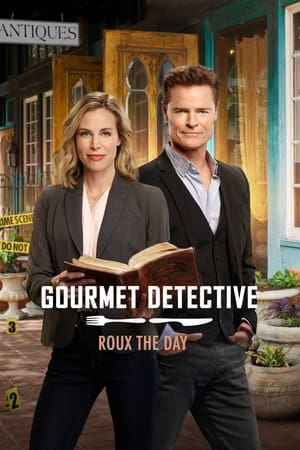 7.3
7.3Gourmet Detective: Roux the Day(en)
Henry is hired to authenticate and purchase a long lost and very valuable recipe book. Soon Henry and Maggie find themselves in a murder mystery where secrets hidden within a treasured book have dire consequences for all who own it.
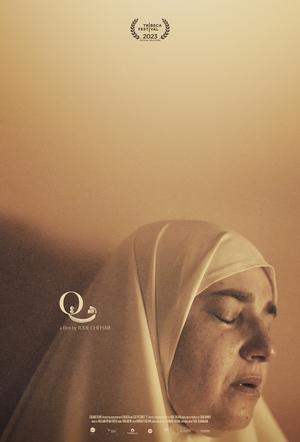 7.0
7.0Q(ar)
An intimate portrayal of a quest for love and acceptance at any cost, Q depicts the influence of a secretive matriarchal religious order on filmmaker Jude Chehab’s family and the unspoken ties and consequences of loyalty that have bonded her mother, grandmother, and herself to the mysterious organization. A love story of a different kind, Q is a multigenerational tale of the eternal search for meaning.
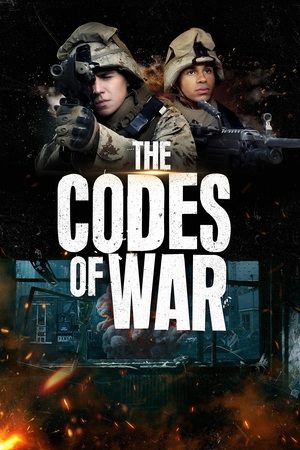 6.1
6.1The Codes of War(en)
War stories about family, ethics and honor include the true story of two U.S. Marines who in a span of six seconds, must stand their ground to stop a suicide truck bomb, a Navy Corpsman who attempts to hold on to his humanity, and a WW2 soldier who gets separated from his squad and is forced to re-evaluate his code.
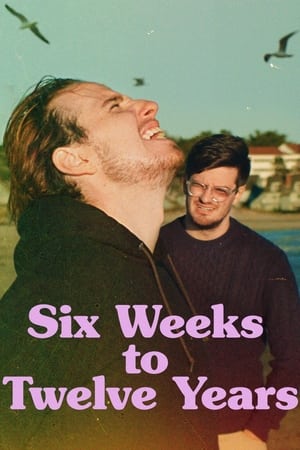 6.1
6.1Six Weeks to Twelve Years(en)
After the death of their abusive father, two estranged twin brothers must reunite and sell off his property.
Mist(en)
Silence dominates the work, as does the screen rectangle, which cuts off the “image” from a life time-space continuum and imposes upon the image its particular character. Within it, there is a play between tonalities, textures, large and small shapes.
Enemy of England(en)
Amidst nation-wide fears of the growing control of the European Union, a terrorist attack destroys a London school, killing children and anti-EU politician Dillon Tudor. With blame falling on an underground resistance movement, the English government calls a state-of-emergency and Europeans become outlaws overnight. In the aftermath, Sophia Tudor hunts those responsible for the death of her brother, as the head of the government's new enforcement agency. But when she is kidnapped and interrogated by the terrorists Sophia discovers that it can be difficult to separate your enemies from your allies.
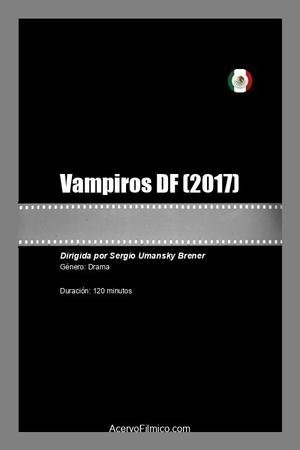 5.5
5.5Vampiros DF(en)
A director attempts to understand why he does what he does.
Mana Huncha Khina Sawule Chuti Dinna Aama(en)
The air in London was damp and cold, a stark contrast to the vibrant warmth of Kathmandu that Anmol often dreamed of. It had been five years since he left Nepal for the United Kingdom, chasing the dreams his mother, Susmita, had envisioned for him. She had sacrificed everything-her small savings, her comfort, and her daily joy of having her son by her side-so Anmol could study and build a better life abroad. Anmol was a hard worker, juggling university classes and long hours at Amrish's restaurant. The boss, a shrewd businessman, valued profits over people. Anmol, like the rest of the staff, was little more than a cog in the relentless machinery of the restaurant's success. One evening, after another grueling 12-hour shift, Anmol sat on his small bed in his shared apartment. His phone buzzed. It was his mother. "Anmol, Dashain and Tihar are coming. I've cleaned the house and even set aside some money to buy your favorite sweets.
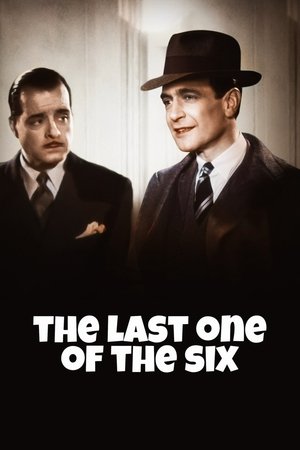 6.2
6.2The Last One of the Six(fr)
Paris, France. Commissaire Wens is put in charge of the investigation into the murder of one of six friends who, in the past, made a very profitable promise.
 5.7
5.7way(en)
San Francisco filmmaker Konrad Steiner took 12 years to complete a montage cycle set to the late Leslie Scalapino’s most celebrated poem, way—a sprawling book-length odyssey of shardlike urban impressions, fraught with obliquely felt social and sexual tensions. Six stylistically distinctive films for each section of way, using sources ranging from Kodachrome footage of sun-kissed S.F. street scenes to internet clips of the Iraq war to a fragmented Fred Astaire dance number.
